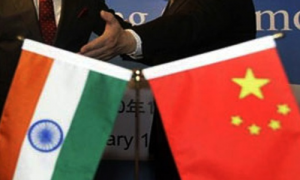Recently on 18 July 2017 India and China jointly submitted a proposal to the World Trade Organisation (WTO) calling for the elimination of farm subsidies by developed countries. In WTO context, this trade distorting farm subsidies is called Aggregate Measurement of Support (AMS) or ‘Amber Box’. It is a prerequisite for consideration of other reforms in domestic support negotiations.
This is an important proposal by India and China in view of ongoing negotiations for the upcoming 11th Ministerial Conference of the WTO to be held in Buenos Aires in December 2017.It counters the efforts of some developed countries to target the subsidies of the developing countries. The subsidies given by developed countries are to retain their huge farm subsidies while the subsidies given by developing countries are for essential purposes.
Elimination of AMS, India and China believe, should be the starting point of reforms rather than seeking reduction of subsidies by developing countries, some of which like India provide a subsistence amount of about US $ 260 per farmer per annum compared to over 100 times more in some developed countries.
About Amber Box: –
The subsidies that distort the international trade by making products of a particular country cheaper as compared to same or similar product from another country is slotted under this box.
Example: – Input subsidies such as subsidy on electricity,seeds,fertilizers, irrigation etc. Market support price (MSP) subsidies also fall under this box.
WTO limit on amber box subsidies: –
For developed country – 5% of agriculture production.
For developing country – 10% of agriculture production.
Background: –
The joint paper reveals that the developed countries, including the US, the EU and Canada, have been consistently providing trade-distorting subsidies to their farmers at levels much higher than the ceiling applicable to developing countries. Developed countries have more than 90% of global AMS entitlements amounting to nearly US$ 160 bn. Most of the developing countries, including India and China, do not have AMS entitlements.
According to a recent report the numbers reveal that subsidies for many items provided by the developed world are over 50% and some even more that 100% of the value of production of the product concerned, while developing countries are forced to contain it within 10% of the value of production. In other words, while developed Members have access to huge amount of AMS beyond their de minimis (these are the minimal amounts of domestic support that are allowed even though they distort trade — up to 5% of the value of production for developed countries, 10% for developing.) in contrast most developing Members have access only to de minimis resulting in a major asymmetry in the rules on agricultural trade.
About WTO: –
The World Trade Organization (WTO) is an intergovernmental organization that regulates international trade.
- WTO was officially commenced on 1 January 1995 under the Marrakesh Agreement, replacing the General Agreement on Tariffs and Trade (GATT).
- Director General of WTO: – Roberto Azevedo
- Headquarters : – Geneva , Switzerland.